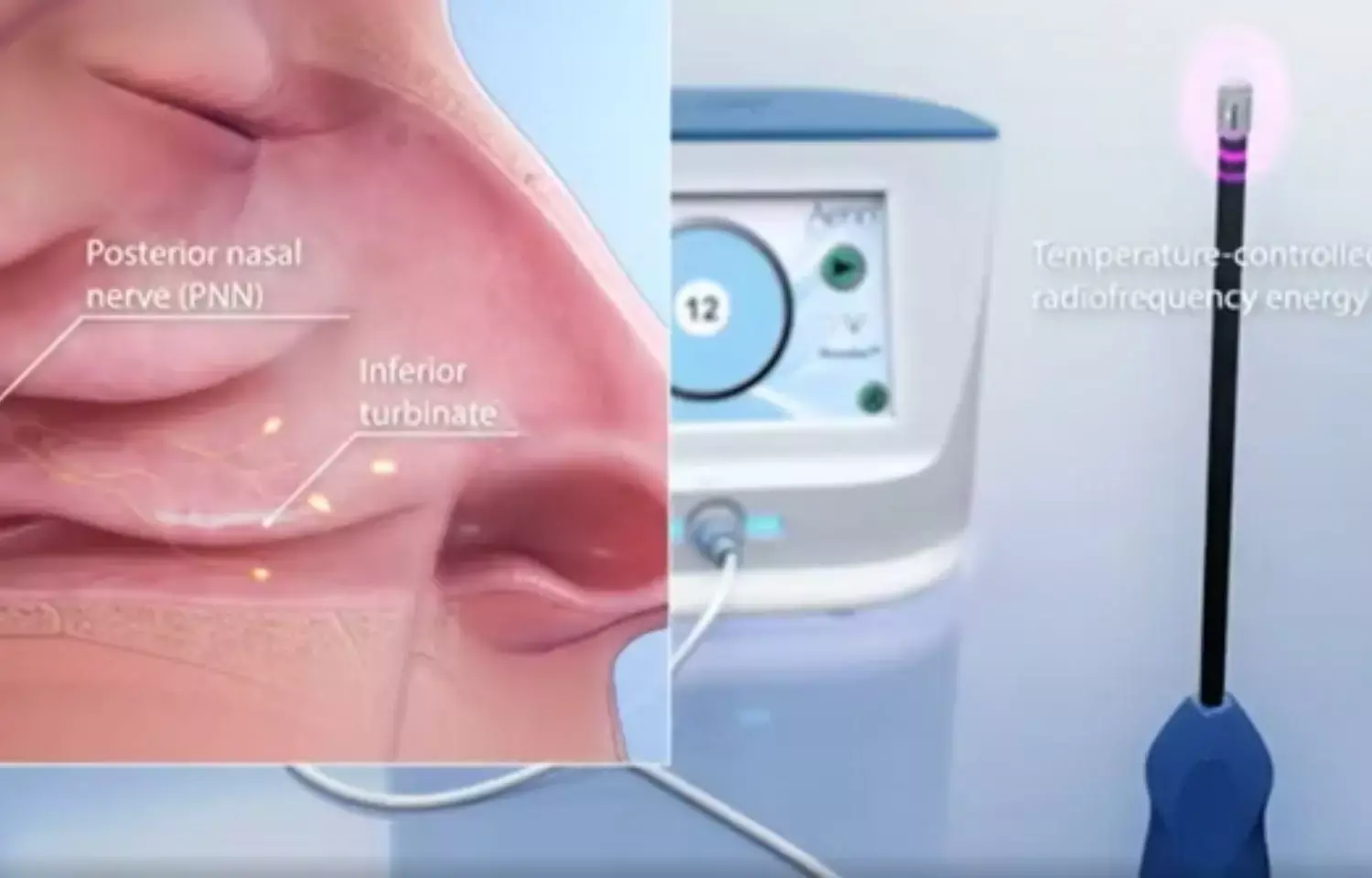- Home
- Medical news & Guidelines
- Anesthesiology
- Cardiology and CTVS
- Critical Care
- Dentistry
- Dermatology
- Diabetes and Endocrinology
- ENT
- Gastroenterology
- Medicine
- Nephrology
- Neurology
- Obstretics-Gynaecology
- Oncology
- Ophthalmology
- Orthopaedics
- Pediatrics-Neonatology
- Psychiatry
- Pulmonology
- Radiology
- Surgery
- Urology
- Laboratory Medicine
- Diet
- Nursing
- Paramedical
- Physiotherapy
- Health news
- Fact Check
- Bone Health Fact Check
- Brain Health Fact Check
- Cancer Related Fact Check
- Child Care Fact Check
- Dental and oral health fact check
- Diabetes and metabolic health fact check
- Diet and Nutrition Fact Check
- Eye and ENT Care Fact Check
- Fitness fact check
- Gut health fact check
- Heart health fact check
- Kidney health fact check
- Medical education fact check
- Men's health fact check
- Respiratory fact check
- Skin and hair care fact check
- Vaccine and Immunization fact check
- Women's health fact check
- AYUSH
- State News
- Andaman and Nicobar Islands
- Andhra Pradesh
- Arunachal Pradesh
- Assam
- Bihar
- Chandigarh
- Chattisgarh
- Dadra and Nagar Haveli
- Daman and Diu
- Delhi
- Goa
- Gujarat
- Haryana
- Himachal Pradesh
- Jammu & Kashmir
- Jharkhand
- Karnataka
- Kerala
- Ladakh
- Lakshadweep
- Madhya Pradesh
- Maharashtra
- Manipur
- Meghalaya
- Mizoram
- Nagaland
- Odisha
- Puducherry
- Punjab
- Rajasthan
- Sikkim
- Tamil Nadu
- Telangana
- Tripura
- Uttar Pradesh
- Uttrakhand
- West Bengal
- Medical Education
- Industry
Temperature-controlled radiofrequency neurolysis effectively treats chronic rhinitis symptoms

USA: Temperature-controlled radiofrequency (TCRF) neurolysis significantly reduced the symptom burden of chronic rhinitis and improved the quality of life of the patients through 24 months postprocedure, states study results published in Allergy & Rhinology.
In chronic rhinitis, posterior nasal neurectomy (PNN) is thought to induce denervation of the nasal mucosa and relieve the symptoms. Minimally invasive treatment options targeting the PNN for treating chronic rhinitis include TCRF neurolysis, in which the temperature of the treatment area is continually measured and energy delivery to the tissue is varied to maintain a 60 °C temperature. TCRF neurolysis enables focused treatment without significant damage to overlying mucosa and adjacent tissue. TCRF neurolysis of PNN has been shown to reduce the symptom burden of patients with chronic rhinitis
Dale Ehmer, Ear, Nose, and Throat Associates of Texas, USA, and colleagues conducted a study to evaluate the long-term safety and effectiveness of TCRF neurolysis of the PNN for the treatment of chronic rhinitis.
Researchers collected reflective total nasal symptom score (rTNSS) and the responses to a study-specific quality of life questionnaire and patient satisfaction survey at 24 months as a prospective extension of an earlier, 12-month single-arm study. 47 patients completed an initial 12-month follow-up after treatment with the study device, of which 34 patients gave consent to participate in the study extension and completed a 24-month follow-up.
Key findings of the study,
• The mean rTNSS of the long-term follow-up patients improved from 8.4 at baseline to 2.9, P < .001 at 24 months, a 65.5% improvement.
• On a 6-point scale (0-5), postnasal drip improved from a mean of 4.1 to 2.1 and chronic cough improved from 3.2 to 0.9 from baseline through 24 months; P < .001 for both measures.
• At 24 months 88.2% of patients achieved a minimal clinically important difference of 30% improvement from baseline.
• At 24 months, 24% of patients were taking overall fewer and 15% taking overall more rhinitis medication classes than at baseline
• Patients reported a higher quality of life in terms of sleep, well-being, and lower oral medication/nasal spray use at 24 months.
• There were no serious adverse events considered related to the procedure in the 12-24-month period.
From the study results, the authors conclude that the TCRF neurolysis of the PNN results in a significant and durable reduction in the symptom burden of chronic rhinitis through 24 months postprocedure. Quality of life in patients improved in terms of better sleep quality, personal feelings, and well-being, and lower oral medication/nasal spray use. Patient-reported satisfaction remained high through 24 months postprocedure.
As Concurrent medication usage was evaluated in this rational study, future studies with a medication control strategy could be useful to explore any confounding effects of medication changes, the authors commented.
Reference:
Ehmer D, McDuffie CM, McIntyre JB, Davis BM, Mehendale NH, Willis JH, Watkins JP, Kakarlapudi VV. Long-term Outcomes Following Temperature-Controlled Radiofrequency Neurolysis for the Treatment of Chronic Rhinitis. Allergy Rhinol (Providence). 2022 May 29;13:21526575221096045. doi: 10.1177/21526575221096045. PMID: 35663498; PMCID: PMC9158436.
BDS
Dr. Hiral patel (BDS) has completed BDS from Gujarat University, Baroda. She has worked in private dental steup for 8years and is currently a consulting general dentist in mumbai. She has recently completed her advanced PG diploma in clinical research and pharmacovigilance. She is passionate about writing and loves to read, analyses and write informative medical content for readers. She can be contacted at editorial@medicaldialogues.in.
Dr Kamal Kant Kohli-MBBS, DTCD- a chest specialist with more than 30 years of practice and a flair for writing clinical articles, Dr Kamal Kant Kohli joined Medical Dialogues as a Chief Editor of Medical News. Besides writing articles, as an editor, he proofreads and verifies all the medical content published on Medical Dialogues including those coming from journals, studies,medical conferences,guidelines etc. Email: drkohli@medicaldialogues.in. Contact no. 011-43720751


